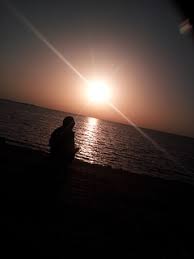
Khadija
In a world often consumed by narratives of conflict and despair, it’s easy to overlook the quiet revolutions ignited by individuals driven by unwavering compassion. Khadija Abdullah, a name perhaps unfamiliar to many, is one such individual whose story tells as one of resilience, dedication, and the power of education amidst the unforgiving landscape of displacement.
Born in 1984 in Mogadishu, Somalia, Khadija’s early life was tragically intertwined with the reality of civil war. Witnessing first-hand the devastating impact of conflict, particularly on the most vulnerable; women and children, left an indelible mark on her young mind. The forced displacement of her family to Kenya’s Dadaab refugee camp, while offering a form of safety, brought with it a new set of challenges.
Dadaab, the world’s largest refugee camp, is an oxymoronic symbol of both human resilience and the immense cost of conflict. Yet, amidst the overcrowded tents, limited resources, and reminiscence, Khadija found purpose in education. For her, education wasn’t merely a path to personal advancement. She saw it as a lifeline, a tool to rebuild shattered lives and a foundation upon which a brighter future could be built.
Driven by this conviction, she immersed herself in her studies, eventually becoming a teacher within the camp. Her classroom, often makeshift and lacking basic resources, became a sanctuary for young minds yearning for the chance to dream again. But Khadija’s vision extended far beyond the confines of a traditional classroom.
In 2012, fuelled by a deep-seated desire to empower refugee children, Khadija took a leap of faith. With meagre savings, unyielding determination, and a small group of ten students, she founded the “Yes We Can” school in Dadaab. The school’s name, more than just a catchy phrase, reflected Khadija’s philosophy – a resolute belief in the potential of every child, regardless of their circumstances, and a firm rejection of the limitations often imposed upon refugee communities.
The school quickly blossomed into a beacon of hope within the camp from its humble beginnings. Word of Khadija’s dedication, her innovative teaching methods, and the school’s nurturing environment spread rapidly. Today, “Yes We Can” stands as a testament to her vision, providing education to over 1,000 students, not just refugees but also children from the local Kenyan community, fostering integration and breaking down barriers.
Fatuma, a young girl who fled Somalia with her family after witnessing her village being attacked, found her voice through the school’s drama program. “Before coming to ‘Yes We Can’, I was so scared to speak, to even leave my tent,” Fatuma shares. “But here, I feel safe, I feel heard.” Stories like Fatuma’s are a testament to the transformative impact of Khadija’s vision.
What sets “Yes We Can” apart is Khadija’s holistic approach to education. Recognizing that true empowerment requires addressing the multifaceted needs of her students, she ensures the curriculum extends beyond traditional academics. Psychosocial support programs help children heal from the trauma of conflict and displacement, while vocational training equips them with valuable skills for a more self-reliant future. Khadija also understands the importance of community, actively involving parents and fostering a sense of ownership and belonging within the school.
Her journey, however, hasn’t been without its obstacles. Securing funding for the school remains a constant struggle, a reminder of the disparities in resources and the overlooked needs of refugee communities. Security concerns, a harsh reality within the camp, add another layer of complexity to her work. And perhaps most disheartening is the occasional resistance encountered from within the community itself.
Yet, Khadija remains resolute. She views these challenges not as insurmountable roadblocks but as opportunities for innovation and collaboration. She has forged partnerships with local organizations and international agencies, leveraging their expertise and resources to provide comprehensive support for the children and their families. She actively advocates for policy changes, amplifying the voices of refugees on national and international platforms, demanding equal access to education and opportunities for displaced communities.
Khadija’s impact extends far beyond the walls of her school. She has become a role model not just for the children she teaches but for women and girls within the camp and beyond. Her story dismantles stereotypes, demonstrating that leadership, and innovation can blossom even in the most challenging of environments.
Her unwavering commitment has not gone unnoticed. In 2018, Khadija was awarded the prestigious UNHCR Nansen Refugee Award, a testament to her extraordinary humanitarian work and her dedication to refugee education. “This award is not for me, it is for my students, for my community, for everyone who believes in the power of education to change the world,” she stated, her voice filled with gratitude.
Despite her remarkable achievements, Khadija remains remarkably humble. For her, the joy lies in witnessing the daily triumphs of her students, seeing them embrace learning, grow in confidence, and dare to dream of a brighter future. She often deflects praise, attributing her success to the collective effort of her dedicated teachers, the unwavering support of the community, and most importantly, the indomitable spirit of her students.
Khadija Abdullah’s story is a powerful reminder that true heroism often manifests in the quietest of corners, far from the glare of media attention and accolades. She embodies the power of individual action, determination, creativity, and belief even in the most vulnerable communities. Her legacy will live on, not just within the walls of “Yes We Can” school, but in the lives of every individual she has touched, inspiring generations to come to embrace the power of education and to become agents of change in their own right.
By: Aituamen Justice Eromosele
Write and Win: Participate in Creative writing Contest & International Essay Contest and win fabulous prizes.


